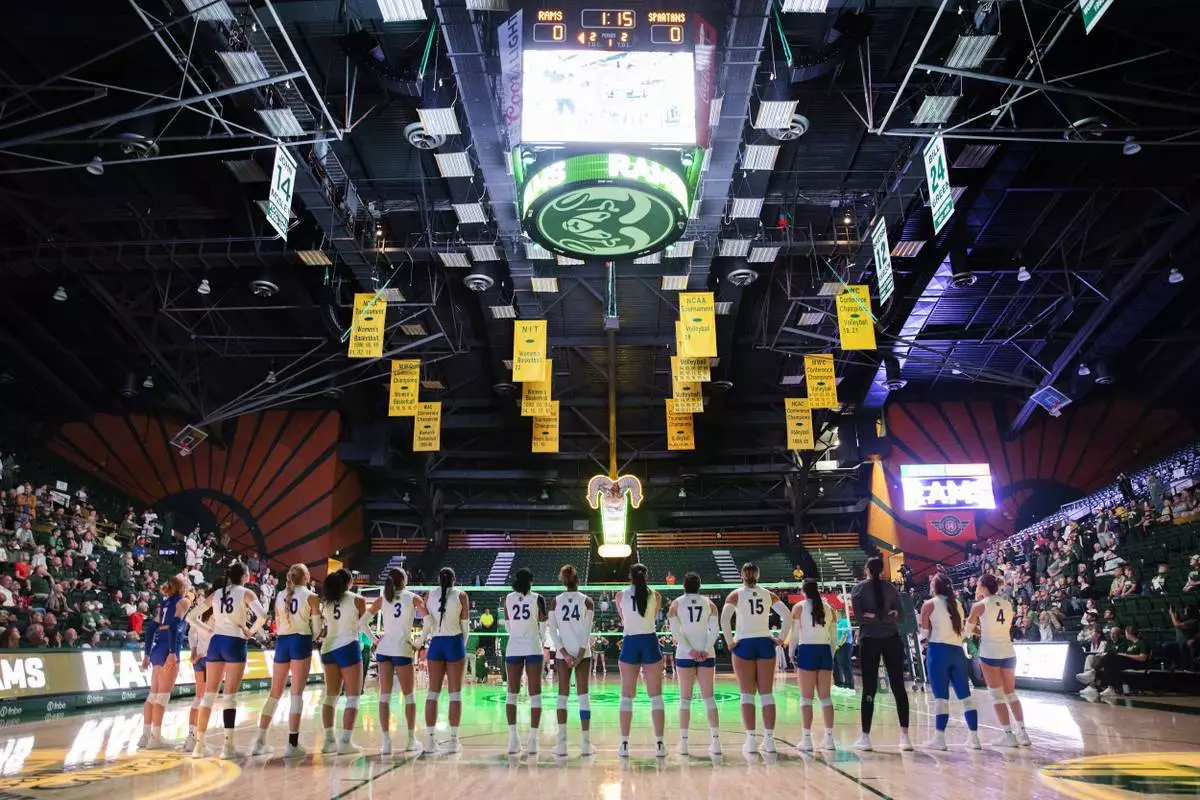WASHINGTON (AP) — The owner and manager of the cargo ship that caused the deadly Baltimore bridge collapse have agreed to pay more than $102 million in cleanup costs to settle a lawsuit brought by the Justice Department, officials said Thursday.
The settlement does not cover any damages for rebuilding the bridge, officials said in a news release announcing the agreement. That construction project could cost close to $2 billion. The state of Maryland has filed its own claim seeking those damages, among others.
The settlement comes a month after the Justice Department sued the ship’s owner Grace Ocean Private Ltd. and manager Synergy Marine Group, both based in Singapore, seeking to recover funds from the cleanup.
The Justice Department alleged that the electrical and mechanical systems on the ship, the Dali, were improperly maintained, causing it to lose power and veer off course before striking a support column on the Francis Scott Key Bridge in March. The ship was leaving Baltimore for Sri Lanka when its steering failed because of the power loss.
Six men on a road crew, who were filling potholes during an overnight shift, fell to their deaths. Cleanup crews worked around the clock searching for bodies and removing thousands of tons of mangled steel and smashed concrete from the bottom of the Patapsco River. The Dali remained stuck amid the wreckage for almost two months, with collapsed steel trusses draped across the ship’s damaged bow.
“This resolution ensures that the costs of the federal government’s cleanup efforts in the Fort McHenry Channel are borne by Grace Ocean and Synergy and not the American taxpayer,” Principal Deputy Associate Attorney General Benjamin Mizer said in a statement.
The collapse snarled commercial shipping traffic through the Port of Baltimore and put many local longshoremen out of work before the channel was fully opened in June. It interrupted East Coast shipping routes as the port is one of the busiest in the country, especially for cars and farm equipment.
Grace Ocean and Synergy filed a court petition just days after the collapse seeking to limit their legal liability in what could become the most expensive marine casualty case in history.
Court records show attorneys for both parties said in a joint filing Thursday that they had reached a settlement agreement and requested dismissal of the Justice Department’s claim, which sought $103 million in cleanup costs.
In a written statement early Friday, a spokesperson for the companies said the settlement isn't an admission of responsibility or wrongdoing. He said Grace Ocean and Synergy will “vigorously defend themselves” in the other pending proceedings.
“The settlement strictly covers costs related to clearing the channel, which we would have been responsible for in any case, and is not indicative of any liability, which we expressly reject for the incident that led to the collapse of the Francis Scott Key Bridge,” spokesperson Darrell Wilson said, noting that the agreement did not include any punitive damages.
The Justice Department claim was one of many filed in an expansive liability case that will ultimately determine how much the ship’s owner and manager will owe for their role in causing the disaster. The other claims are still unresolved. They’ve been filed on behalf of the victims’ families, companies whose business has suffered as a result of the collapse, municipal entities and more.
FBI agents boarded the ship in April amid a criminal investigation into the circumstances leading up to the collapse.
When it was filed last month, the Justice Department civil claim provided the most detailed account yet of the cascading series of failures that left the Dali’s pilots and crew helpless in the face of looming disaster. The complaint pointed to “excessive vibrations” on the ship that attorneys called a “well-known cause of transformer and electrical failure.” Instead of dealing with the source of the excessive vibrations, crew members “jury-rigged” the ship, the complaint alleged.
It also noted cracked equipment in the engine room and pieces of cargo shaken loose. The ship’s electrical equipment was in such bad condition that an independent agency stopped further electrical testing because of safety concerns, according to the lawsuit.

FILE - The cargo ship Dali is stuck under part of the structure of the Francis Scott Key Bridge after the ship hit the bridge, Tuesday, March 26, 2024, as seen from Pasadena, Md. (AP Photo/Mark Schiefelbein, File)
A judge on Monday rejected a request to block a San Jose State women’s volleyball team member from playing in a conference tournament on grounds that she is transgender.
The ruling by U.S. Magistrate Judge S. Kato Crews in Denver will allow the player, who has played all season, to compete in the Mountain West Conference women’s championship opening this week in Las Vegas.
The ruling comes in a lawsuit filed by nine current players against the Mountain West Conference challenging the league’s policies for allowing transgender players to participate. The players argued that letting her compete was a safety risk and unfair.
While some media have reported those and other details, neither San Jose State nor the forfeiting teams have confirmed the school has a trans woman volleyball player. The Associated Press is withholding the player’s name because she has not commented publicly on her gender identity. School officials also have declined an interview request with the player.
Crews' ruling referred to the athlete as an “alleged transgender” player and noted that no defendant disputed that the San Jose State roster includes a transgender woman player.
San Jose State will "continue to support its student-athletes and reject discrimination in all forms," the university said in a statement, confirming that all its student-athletes are eligible to participate under NCAA and conference rules. “We are gratified that the Court rejected an eleventh-hour attempt to change those rules. Our team looks forward to competing in the Mountain West volleyball tournament this week."
The conference did not immediately respond to an email seeking comment.
The players filed a notice for emergency appeal with the 10th U.S. Circuit Court of Appeals.
Crews said the players who filed the complaint could have sought relief much earlier, noting the individual universities had acknowledged that not playing their games against San Jose State this season would result in a loss in league standings. He also refused a request to re-seed the tournament without the forfeited losses.
The judge said injunctions are meant to preserve the status quo. The conference policy regarding forfeiting for refusing to play against a team with a transgender player had been in effect since 2022 and the San Jose State player has been on the roster since 2022 -– making that the status quo.
The player competed at the college level three previous seasons, including two for San Jose State, drawing little attention. This season’s awareness of her reported identity led to an uproar among some players, pundits, parents and politicians in a major election year.
Crews' ruling also said injunctions are meant to prevent harm, but in this case, he argued, the harm has already occurred. The games have been forfeited, the tournament has been seeded, the teams have made travel plans and the participants have confirmed they're playing.
The tournament starts Wednesday and continues Friday and Saturday. Colorado State is seeded first and San Jose State, second. The teams split their regular-season matches and both get byes into Friday's semifinals.
San Jose State will play the winner of Wednesday's match between Utah State and Boise State — teams that both forfeited matches to SJSU during the regular season.
The conference tournament winner gets an automatic bid to the NCAA tournament. San Jose State coach Todd Kress, whose team has not competed in the national tournament since 2001, has said his team has been getting “messages of hate” and that has taken a toll on his players.
Several teams refused to play against San Jose State during the season, earning losses in the official conference standings. Boise State and Wyoming each had two forfeits while Utah State and Nevada both had one. Southern Utah, a member of the Western Athletic Conference, was first to cancel against San Jose State this year.
Nevada’s players stated they “refuse to participate in any match that advances injustice against female athletes,” without elaborating. Nevada did not qualify for the conference tournament.
The nine current players and others now suing the Mountain West Conference, the California State University Board of Trustees and others include San Jose State senior setter and co-captain Brooke Slusser. The teammate Slusser says is transgender hits the volleyball with more force than others on the team, raising fear during practices of suffering concussions from a head hit, the complaint says.
The Independent Council on Women’s Sports is funding a separate lawsuit against the NCAA for allowing transgender women to compete in women’s sports.
Both lawsuits claim the landmark 1972 federal antidiscrimination law known as Title IX prohibits transgender women in women’s sports. Title IX prohibits sexual discrimination in federally funded education; Slusser is a plaintiff in both lawsuits.
Several circuit courts have used a U.S. Supreme Court ruling to conclude that discriminating against someone based on their transgender status or sexual orientation is sex-based discrimination, Crews wrote. That means case law does not prove the “likelihood of success” needed to grant an injunction.
An NCAA policy that subjects transgender participation to the rules of sports governing bodies took effect this academic year. USA Volleyball says a trans woman must suppress testosterone for 12 months before competing. The NCAA has not flagged any issues with San Jose State.
The Republican governors of Idaho, Nevada, Utah and Wyoming have made public statements in support of the team cancellations, citing fairness in women’s sports. President-elect Donald Trump likewise has spoken out against allowing transgender women to compete in women’s sports.
Crews was a magistrate judge in Colorado’s U.S. District Court for more than five years before President Joe Biden appointed him as a federal judge in January.
Gruver reported from Cheyenne, Wyoming, and Hanson from Helena, Montana.

FILE - The San Jose State University Spartans line up for the playing of the national anthem and player introductions for their NCAA Mountain West women's volleyball game against the Colorado State University Rams in Fort Collins, Colo., on Oct. 3, 2024. (Santiago Mejia/San Francisco Chronicle via AP, file)











